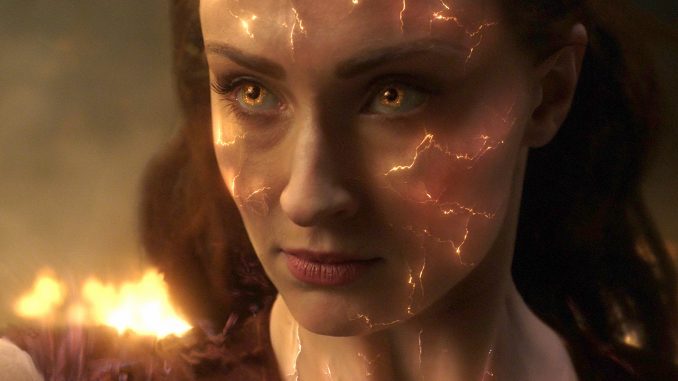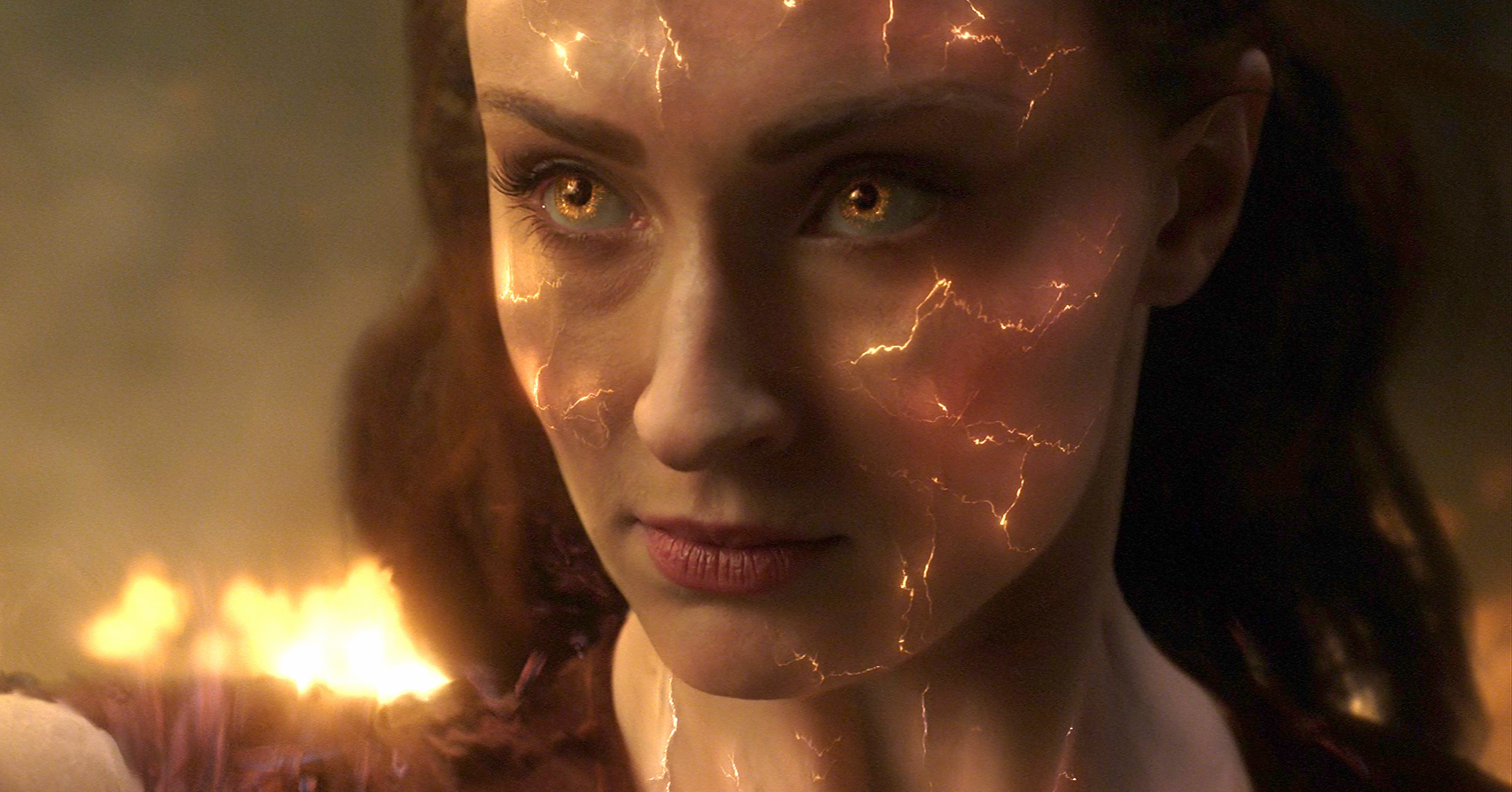

Sophie Turner in Dark Phoenix.
Apparently, this one didn’t rise from the ashes.
Dark Phoenix, the 12th and ostensibly final film in the 19-year-old X-Men franchise, launched with a whimper, grossing just an estimated $33 million at the domestic box office.
It’s the lowest domestic debut yet during the 2019 summer movie season, and the worst ever debut for an X-Men film by a considerable margin, coming well under the $53.1 million opening weekend for 2013’s The Wolverine.
So what happened? To start, Dark Phoenix debuted to terrible reviews, including a franchise-worst 23% rating on Rotten Tomatoes. That’s a dreadful score for any movie, but especially damning considering the film adapts the most beloved storyline in the history of the X-Men comic books, when Jean Grey (Sophie Turner) absorbs the seemingly limitless power of a force known as the Phoenix.
Thirteen years ago, X-Men: The Last Stand attempted to adapt the same storyline, with Famke Janssen as Jean, and fans wildly did not approve. That film’s co-writer, Simon Kinberg, wrote and directed Dark Phoenix, and he has been upfront that he saw the film as a chance to right the wrongs of The Last Stand. Instead, it seems Dark Phoenix neither convinced enough die-hard fans it would do justice to the Dark Phoenix Saga, nor convinced enough casual fans to revisit Jean Grey’s eyes going red as she stares into the middle distance and hurts a bunch of her friends.
Famke Janssen in X-Men: The Last Stand.
In fact, thanks to the film’s marketing, the only thing fans knew for certain was that Mystique, the character played by Dark Phoenix‘s biggest star, Jennifer Lawrence, is killed off in the film: Not exactly a huge incentive to rush out to see it.
Also, audiences only met Turner’s version of Jean Grey in 2016’s X-Men: Apocalypse, one of the worst-reviewed and lowest grossing X-Men films in the entire franchise, so it’s not like there’s been a huge groundswell of affection for this iteration of the character.
Since Apocalypse, the flagship X-Men franchise sat dormant while two R-rated spinoffs — the self-aware comedy Deadpool 2 and the bleak drama Logan — brought fresh and appealing approaches to superhero filmmaking, and opened to wide acclaim and strong box office grosses. Dark Phoenix, by contrast, looked like a return to the same formula of the earlier X-Men movies with none of the innovation.
James McAvoy, Kodi Smit-McPhee, and Alexandra Shipp in Dark Phoenix.
Dark Phoenix‘s only distinctive quality, really, was that it was sold as the conclusion to the convoluted saga first launched by 2000’s X-Men. But audiences just engorged themselves on Avengers: Endgame, the concluding film in the far more popular (and internally coherent) Infinity Saga within the Marvel Cinematic Universe. So Dark Phoenix — the fourth superhero movie this year after Captain Marvel, Shazam!, and Endgame — likely ran into some significant superhero fatigue.
Finally, the studio that released Dark Phoenix and every other X-Men film, 20th Century Fox, was just bought by Disney, bringing the film rights to the X-Men back to Marvel Studios. That makes it likely that in a few years, Professor Charles Xavier, Magneto, Wolverine, Mystique, and Jean Grey will begin to weave their way into the Marvel Cinematic Universe — so why bother buying a ticket to a lame duck franchise when a fresh take is already on the horizon?

